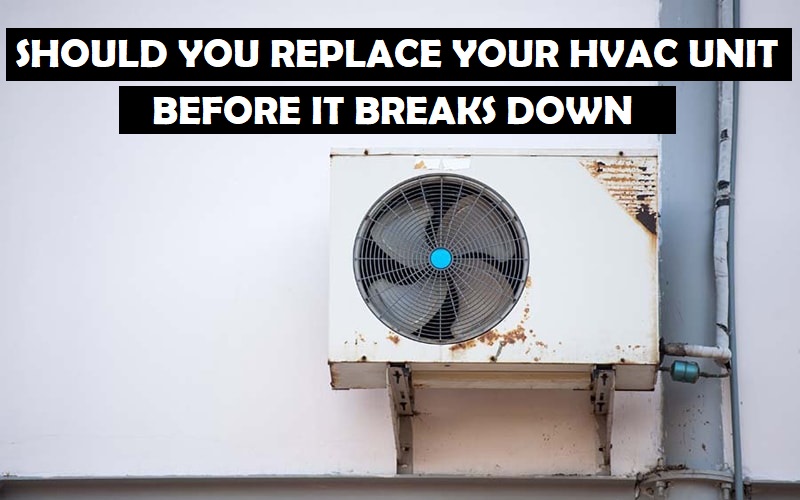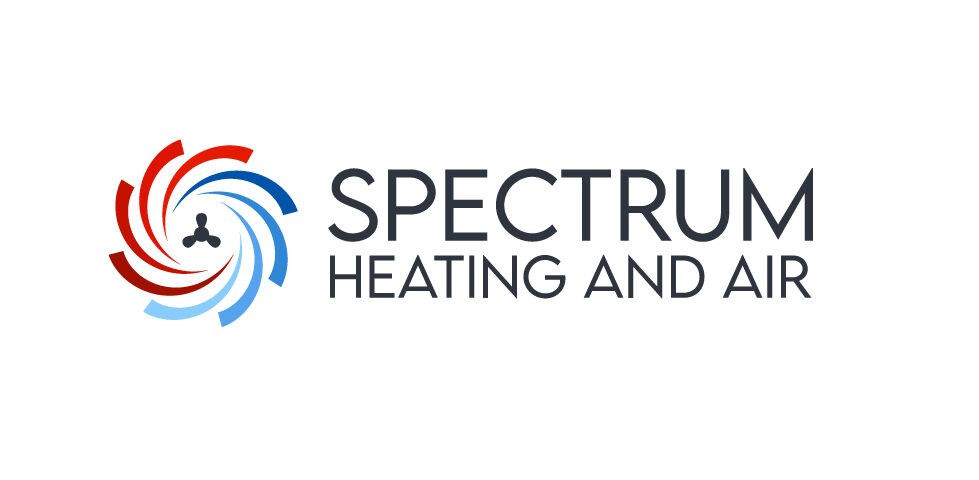The HVAC unit is a system that uses fluid to transfer heat and/or coolness through a network of pipes. The system’s refrigerant can leak out and cause the unit to no longer function. Replacing an HVAC unit is a simple process and will help ensure air conditioning during the fall, winter, and spring months. Replacing your HVAC unit before it stops working will save you not only money but also prevent possible health concerns.
In this article, we will discuss whether or not it is worth replacing your HVAC unit before it breaks down.

Health Concerns
If the refrigerant leaks out into the air, it is possible that you could be exposed to its harmful chemicals. These chemicals can cause damage to your health or death if inhaled over a long period of time. If you have a leaking HVAC unit, you should immediately remove yourself from the house and turn the system off to prevent further exposure. Early symptoms concerns of a leaky HVAC unit are listed below.
- Headache
- Nausea
- Dizziness
- Irritated eyes, nose, and throat
Long-term exposure to refrigerants also can cause cancer and other harmful health effects. The chemicals used in HVAC units have been known to cause cancer in animals, so it is recommended that you not be exposed to these chemicals over a long period of time.
How Much Does A New HVAC Unit Cost?
This is the single most important factor when deciding whether or not to replace your HVAC unit. The average cost of replacing a unit is about $5,000 – $15,000, which includes installation and any other work that may be needed (i.e. refrigerant). The cost of replacing your system will depend on several factors including the type and size of the unit needed. The most common factors that will affect the cost of a new unit are:
- The size and type of your current system (i.e. ductless/central)
- The amount of work that will be required to remove your current system (i.e. walls will need to be removed)
- If a new unit needs to be built, how long the project will take, and if permits are required (i.e. city permits are required; the process will take longer)
How to Replace Your HVAC Unit
The process of replacing an HVAC unit starts with removing your current system. You should start by turning off the power to your unit to prevent any electrical complications. Next, you should begin removing the ductwork that connects the HVAC system in your house to the outside unit. The next steps include either replacing or removing an old unit and installing a new one. The last step is connecting the ductwork back to the new unit. This process can take anywhere between 1-2 days (including removal, replacement, and installation).
Why Should You Not Replace Your HVAC Unit
You should not replace an HVAC unit unless the cost outweighs the benefits of replacing it. If you do not have the financial means to replace your unit, then you should contact a professional to ensure that your system is functioning correctly.
If your system does not have any noticeable issues, replacing an HVAC unit could cost you anywhere from $5,000-$15,000. You should be careful about replacing an HVAC unit if you do not notice issues with the current system. If the unit is working properly and cooling or heating your house, then you might save money by simply repairing your existing HVAC unit.
How to Save Money on Your HVAC Unit
There are a few ways in which you can save money on replacing your HVAC unit. The first way is by reducing the cost of your new unit. Check with local businesses to see if they offer discounts or coupons for customers who need a new system. Another way is to do the installation yourself, which will only cost you half of what you would spend if you hire someone else. If you cannot do the work yourself, then your next best option is to shop around and get multiple quotes from local HVAC companies.
You are most likely to get the best deals on HVAC units in September and October when many companies will be trying to make sales for the fall season. You can also save money on an HVAC unit by purchasing a used unit from an individual instead of from a business. You will likely get the same quality product but at a cheaper price if you purchase a used HVAC unit.
You can also save money by using your homeowner’s insurance for any problems that occur with your current system. Your homeowner’s insurance may pay for part or all of the cost of replacing your system.
Conclusion
When replacing an HVAC unit, you should consider the cost and health risks associated with having a malfunctioning system. Replacing your unit can be a costly endeavor but the benefits outweigh the risks. Make sure that you replace your system before it stops working to ensure the health of you and your family.
Call Spectrum Heating and Air Conditioning, to learn more about the benefits of replacing your HVAC unit.




